#diaspora
Text
You can't go to the bathroom or use the aisle for any purpose, because an entitled religion-of-peace advocate has to block the aisle so he can do what he wants.
This is against FAA regulations and a safety hazard.
Tolerance seems to be demanded and only goes one way.
#israel#secular-jew#jewish#judaism#israeli#jerusalem#diaspora#secular jew#secularjew#islam#prayer#Islamist#airplane safety#airline safety#religion of peace#religion of pieces#hatred#intolerance#submission#tolerance#islamists#jihad#Isis#Islamic jihad#Hamas#muslim brotherhood
34 notes
·
View notes
Text
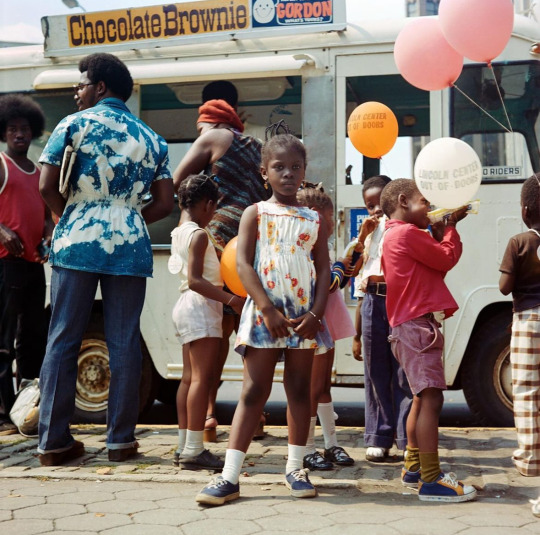
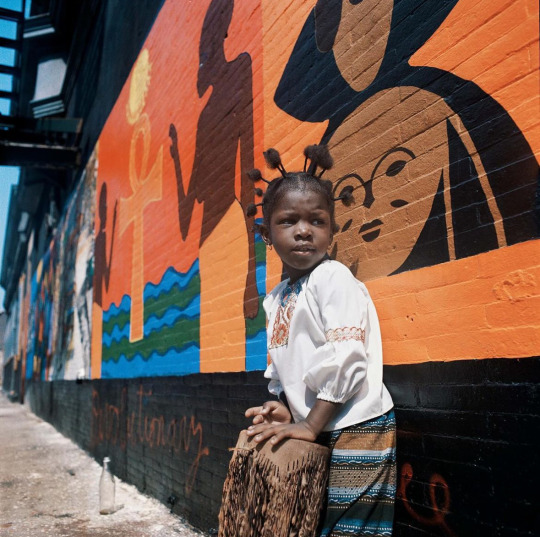
Portraits of Ndola Brathwaite, daughter of Kwame Brathwaite (1938-2023), sporting traditional “akaba” and “ajakolo” hairstyles in Harlem, NY
Courtesy of Kwame Brathwaite [@kwamebphoto]
564 notes
·
View notes
Text
FRIENDS — PLEASE SHARE!
The Sholem Aleichem Cultural Center in the Bronx was recently the victim of antisemitic vandalism. They have started a GoFundMe to cover cleaning costs. They need our help! The center is a vital Yiddishist organization that has been serving New York for over 50 years, and they are in desperate need of financial assistance. Please reblog and share widely!!!! A gitn shabes.
499 notes
·
View notes
Text
#fit girls#hot as fuck#thick babe#thickwomen#dm me for my content#arabian#arabic#art#thicc girls#رقص شرقي#رقص مصري#رقص#رقص اغراء#رقص بنات سعوديات سكس عربي#رقص خليجي#رقص سكس#رقص سوريات#رقص شامي#رقص عراقي#رقص عربي#arabic7up#latin#german#diaspora#spanish
172 notes
·
View notes
Text
It means a lot to me that Acau and Jungryeok were so supportive of Tina whenever she tried speaking Korean. Being a diaspora is hard, especially when you're still learning your family's language cause they didn't teach you it growing up; its nice seeing them encourage her and wanting to help her get better at it. If you're in the same boat, don't be ashamed of it, multi-ethnicity is its own unique blend of cultures and its wonderful, and if learning your family's language is something you've been wanting to do just go for it! Don't be afraid of the hurdles, go at your own pace and remember that you're no less your culture because you were raised somewhere else. Sincerely, someone who is very behind on their portuguese studies😁
199 notes
·
View notes
Text
A companion to this poll.
(Once again, though I should not have to say this: this is not a post for political discourse, whatever your perspective. And it is most definitely not a post for political discourse from non-Jews.
You are more than welcome to respectfully share your reasons for your response. Using the poll as a platform for debate — or for criticizing others for their answers — will result in a block. 👍)
#polls#poll#jumblr poll#jumblr#frumblr#judaism#israel#diaspora#eretz yisrael#aliyah#making aliyah#dandelion polls
153 notes
·
View notes
Photo
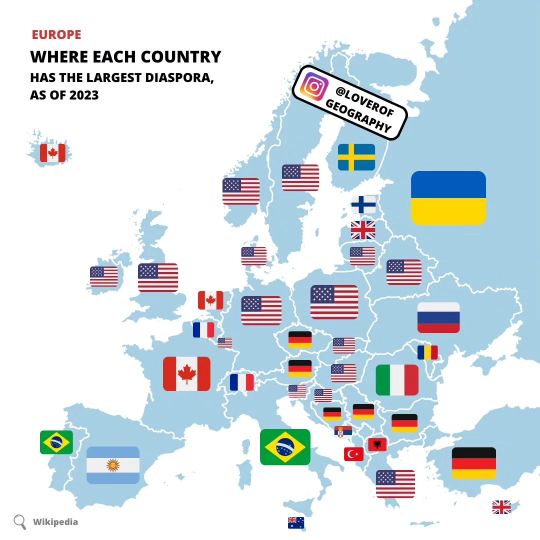
Where the countries on this map have the largest diaspora as of 2023.
Example: the largest German diaspora lives in USA
by loverofgeography
319 notes
·
View notes
Note
I’m Jewish through my dad but I wasn’t raised in the community(i learned what Purim was two weeks ago, i was fully not in it), so when I got to college last august I decided to really dive in and it’s been a beautiful sort of homecoming for me. I joined SAEPi and got into Chabbad leadership at my campus, and I’m almost at the point where I can do the Chabbad Shabbat prayers before and after dinner without stumbling over my words. Gonna surprise my grandma if I see her in the summer. Anyways.
When October 7th happened it was a shock to my system, because I was a baby Jew barely getting my feet. My parents never mentioned antisemitism to me as something that could affect me in the future, it was always a thing of the past. But I was right there standing in the doorway between jew-ish and Jewish, and it pushed me over the edge. I had many friends with family in Israel. I had a couple friends whose friends died in the attack. Everyone in that group was my family. It felt personal.
When the march in dc happened I went with one of my friends, and it was sad, but amazing to see in person how strong we are. In the plane terminal on the way home he and I got cornered and called baby killers, among other things, because he was wearing a kippa and his Israeli first responder coat. That was my first time experiencing antisemitism and it was terrifying, even though I didn’t get hurt. It was terrifying even though my friend was built like a tank and would’ve protected me. It was terrifying just to sit in the train car with him and watch a woman stare at him with wide eyes like he was some kind of criminal. I stepped closer to him as if to remind her he’s human. I stared back at her with just as much fear and watched her snap out of it, confused.
Last week was holocaust awareness week at my college, and one of the things I did was spend a couple hours in the plaza reading the names of people that died. I found 34 Feldmans and Fotts. I found family names, Chana and Fayge and Jeshua and Sophia Feldman one after the other, and still am wondering if that was part of my family that didn’t make it to the US in time.
I called my grandma and asked for everything she could remember about her family lineage and how we got here, everything she had from that part of her life. I thought that there would be plenty to lean into, family recipes and heirlooms and stories, but there was barely anything. She has a Star of David necklace and a ton of repressed memories, next to nothing else. The recipes I could find were through my great aunt, some short instructions from my great grandmother on the back of a letter she sent to the aunt about what to ask for from a kosher butcher.
My family made it here in 1915 and 1921, they escaped before the holocaust, but they still weren’t untouched because of the ways they were ostracized and othered when they got here. My grandmother will barely admit she’s Jewish because none of her kids passed it on, it’s easier for her to let it go. I didn’t understand this until I realized that one couldn’t be hurt by the grief and pain of a family they aren’t part of.
Even those that survive are not left unscarred.
How could this not be personal? How could it not be generationally affective when it’s pushed so many to minimize their Jewishness out of self preservation? Raise their kids thinking they aren’t Jewish and hope their names never end up on a list of living or dead Jews? People still don’t see us as human. the antisemites still want to scar us. They want us to forget who we are.
It’s unreal to me when goyim act like American Jews in the current day are unaffected by the past and safe from antisemitism. I’ve been here less than a year and have been screamed at in an airport, have uncovered serious intergenerational trauma, and realized that of my Jewish family I have nothing to hold on to but a torn in half piece of paper with a sentence long tangent about brisket.
We are strong and we will outlive them, but god are we still fucking fighting for our lives.
.
#jewish vents#antisemitism#diaspora#long post#Jewish#judaism#this is an amazing post anon I'm sorry I lack the words to respond#thank you so much for sharing
114 notes
·
View notes
Text

#the maccabees#israeli#israel#secular-jew#jewish#judaism#jerusalem#diaspora#secular jew#secularjew#islam#Simon maccabeus#judea#Samaria#antisemitism#roman empire#Rome#Roman colonialism#colonialism
26 notes
·
View notes
Text
Just discovered that Henna is also a jewish(israelite) thing and that the henna plant was in the torah and that it symbolizes forgiveness and absolution. I thought it was an arab thing and mizrahi jewish traditions but no its full jewish tradition and symbol!!

Ngl it kinda makes me giddy inside to discover new(for me) native ancient jewish traditions that doesn't fall with the diaspora
#israel#jumbler#am israel hai#jewish#jews#ישראבלר#Hebrew#israelites#Ancient israel#Ancient jews#jewish traditions#jewish history#Judea#יהדות#עם ישראל חי#עם הנצח#jumblr#Henna#Torah#Jewish bible#Bible#History#traditions#I love the jewish nation#diaspora
77 notes
·
View notes
Text
Are there Black dialects of Spanish?

Some people got a surprising result after taking an MIT dialect quiz. It was meant to guess what U.S. dialect the test taker spoke and the person's native language. As results started coming in, many Spanish speakers saw their English dialect had been marked as “U.S. Black Vernacular/Ebonics”
But what's the connection between speaking Spanish and U.S. Black Vernacular?
In the United States, dialects spoken by African Americans are sometimes referred to as Black English, African American Vernacular English, or even Ebonics. Though the terms have had different levels of popularity, having a specific name at all has given African Americans the ability to reclaim their language practices as a joyous part of their identity.
But much less common are terms and discussions about Blackness and Black language beyond English. If Black English dialects exist, are there also Black forms of other languages due to colonization? For example, are there Black Spanishes and Black Portugueses, too? Read more here.
Source: Are there Black dialects of Spanish? by Aris M. Clemons
Visit www.attawellsummer.com/forthosebefore to learn more about Black history.
Need a freelance graphic designer or illustrator? Send me an email.
#black history#Afro-Latino#diaspora#African diaspora#dialects#linguistics#race#identity#language#Spanish#AAVE#ebonics#African American Vernacular English
101 notes
·
View notes
Text
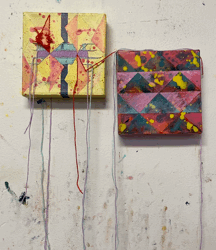

Part of my ongoing project about a cacophony of thoughts, a select few being: the impact of colonialism on the colonised, ancestral memory, what it means to be a part of a diaspora… not belonging anywhere… belonging everywhere, How the ancient trade routes connected us all… and the list goes on….
#artists on tumblr#painting#wip#abstract#contemporary art#contemporary painting#diaspora#embroidery#representation matters#geometric#pattern
121 notes
·
View notes
Text
Dom a Lloyd : Cymru Heddiw
youtube
Hiiii!! Please share this. This is a cool video regarding Black Welsh speakers and some of the progress and some of the obstacles that have been happening in the country of Wales in regarding to Black Welsh people. Everyone can be a part of revitalizing a language and in regards to revitalizing indigenous languages (like Welsh) anti-Blackness should have no place in the process. This is something I think no one really talks about and I LOVE this YouTube channel it needs more subscribers for sure!!
#welsh#black culture#black people#black girl magic#wales#celtic#welsh language#cymru#cymraeg#black pride#black history#indigenous#indigenous languages#indigenous issues#diaspora#intercultural#welsh culture#celtic pride#Youtube
175 notes
·
View notes
Text
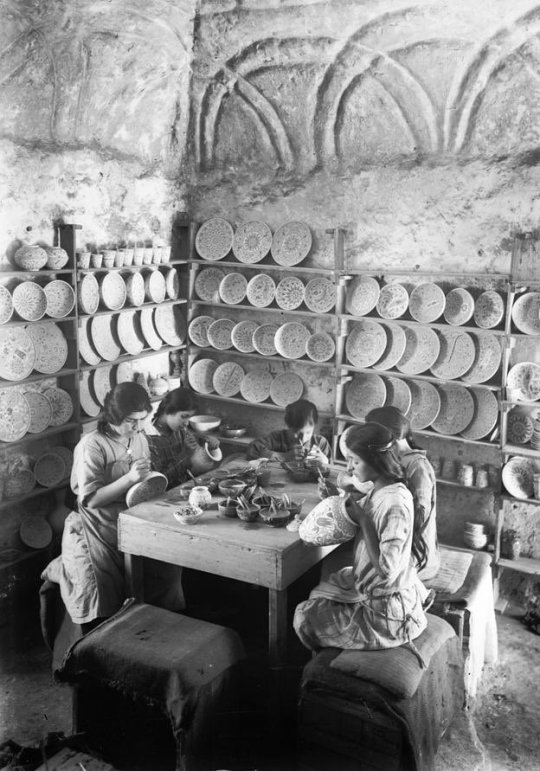
Armenian women painting ceramics at the workshop of David Ohanessian, Jerusalem, Palestine, 1920s.
2K notes
·
View notes
Text
How do you protect a culture that is being wiped out?
For Uighurs, this is more than just a hypothetical. Repressive measures against the ethnic minority have progressively worsened: The Chinese government has corralled more than 1 million of them into internment camps, where they have been subjected to political indoctrination, forced sterilization, and torture.
The targeting of the Uighurs isn’t limited to the camps. Since 2016, dozens of graveyards and religious sites have been destroyed. The Uighur language has been banned in Xinjiang schools in favor of Mandarin Chinese. Practicing Islam, the predominant Uighur faith, has been discouraged as a “sign of extremism.”
Beijing frames these moves as its way of rooting out terrorism, separatism, and religious extremism. But the aim of China’s actions in Xinjiang is clear: to homogenize Uighurs into the country’s Han Chinese majority, even if that means erasing their cultural and religious identity for good. What is taking place is a cultural genocide.
The repercussions bear heavily even on Uighurs living outside the country. Their burden is more than just raising awareness about what is taking place in their homeland—a task many have taken up at great cost to themselves and their families. It’s also about preserving and promoting their identity in countries where few people might know who the Uighurs are, let alone what the world stands to lose should their language, food, art, and traditions be eradicated.
In an effort to understand what this kind of cultural preservation looks like in practice, I spoke with seven Uighurs residing in Britain, France, Turkey, and the United States. As chefs, poets, singers, filmmakers, language teachers, and musicians, each of them is contributing to this work in different ways. All of them are passionate about ensuring that their heritage will be passed on to future generations. None of them is under any illusions about what’s at stake if they fail.
“Every Uighur now is under very big psychological pressure,” Omer Kanat, the director of the Uyghur Human Rights Project, a Washington, D.C.–based nonprofit, told me. “We cannot sleep at night.”
#current events#culture#genocide#cultural genocide#oppression#diaspora#islamophobia#uyghur genocide#xinjiang#uyghurs
332 notes
·
View notes
Text
#fit girls#hot as fuck#thick babe#thickwomen#dm me for my content#arabian#arabic#art#thicc girls#رقص شرقي#arabic7up#latin#german#diaspora#spanish#رقص مصري#رقص اغراء#رقص بنات سعوديات سكس عربي#رقص خليجي#رقص سوريات#رقص سكس#رقص شامي#رقص عراقي#رقص عربي#عراقي#الرياض#السعودية#riyadh#كوب قهوة#music
68 notes
·
View notes